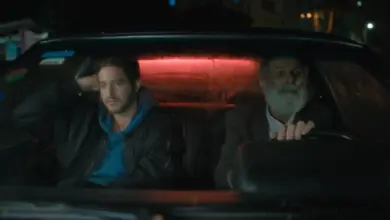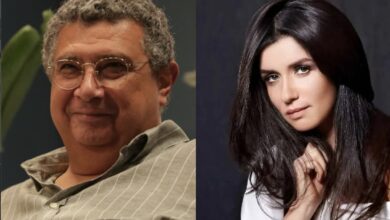As part of life gradually returning to normal, the Italian Cultural Institute in Cairo has resumed its activities. It has scheduled a series of movies on mafia and corruption.
The first, "Brave Men" (original title "Galantuomini"), was screened on 7 March. Made in 2008 by Edoardo Winspeare, it is set in the city of Lecce in the 1990s.
It is a crime drama that was released on the heels of the outstanding and violent "Gomorrah" (by Matteo Garrone), but the narrow focus of "Brave Men" on the love story between the two main characters makes the film far less effective than its predecessor. Ignazio, a highly esteemed judge who has just returned to the city, has been entrusted with the murder case of his childhood friend, but a difficult conflict of interest obliges him to resign when he finds out that Lucia, the woman he loves, is involved. Lucia never left Lecce, but became the right-hand woman of Carmine Zà, one of the bosses of the Sacra Corona Unita, a real-life crime outfit that reached the apex of its power and ferocity in the mid-1990s in Apulia, a region in the southern Italy.
Next Sunday the institute will screen "Fortapàsc", a 2009 movie by Marco Risi, son of the master of Italian comedy Dino Risi, who died in 2008. It tells the true story of Giancarlo Siani, the 26-year-old reporter at daily paper Il Mattino, who was murdered in 1985 by the Camorra, the Neapolitan crime organization, while investigating corruption in earthquake reconstruction efforts in Naples. The title, pronounced "Fort-apash" in southern dialect, refers to John Ford’s classic western Fort Apache and the lawlessness of Mafia-ruled Naples.
"Placido Rizzotto", 2000 movie directed by Pasquale Scimeca, will be screened on 20 March. Set in Sicily, it also tells a true story, this time of a young guy who returns to his native village to find out that a Mafia chief has taken control, unfairly assigning jobs and land. His rebellion against this new illegal system also has a tragic end.
“In the Light of the Sun” (originally “Alla luce del Sole”), a 2005 movie by Roberto Faenza, will close the series on 27 March. It is based on the true story of Father Pino Pugliesi, a priest assigned to serve a mafia-controlled district of Palermo, a historic city in Sicily. From 1990 to 1993, he helped get kids off the streets, teaching them the importance of studying and living in respect of the law. The kids’ parents, who belong to mafia or simply fear it, do not appreciate Pugliesi’s efforts.
After sending many clear messages to the so-called men of honor to act “in the light of the sun” rather than the shadows, Puglisi openly condemned the murders of Giovanni Falcone and Paolo Borsellino, two anti-mafia magistrates killed in 1992 by car bombs within two months of each other. The priest was assassinated on his 56th birthday for attempting to oppose an illegal order that legitimizes itself as a state within the state.
All the movies start at 6 PM and are screened in their original language with English subtitles.
The Italian Archaeological Centre, meanwhile, will host lectures for beginners and amateurs. After the introduction given by Rosanna Pirelli on 7 March on the figure of Sethi I, next Monday at 6 PM Federico Contardi will give a lecture on the “Naos of Sethi I in the Egyptian Museum of Turin.” A lecture curated by the Society of Egyptian Heritage Conservation will be held at the Italian Cultural Institute Theatre on March 15.



